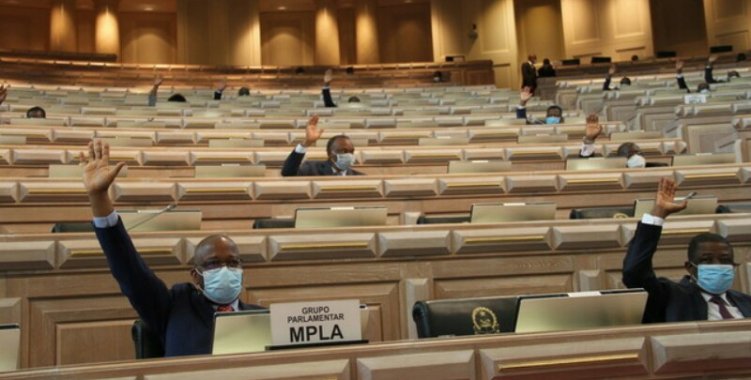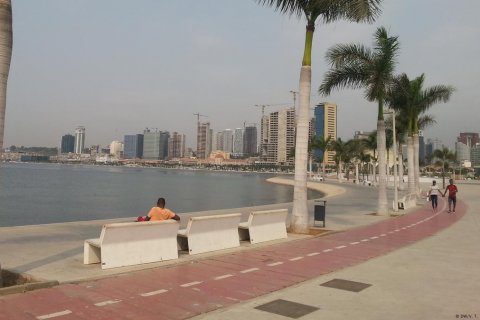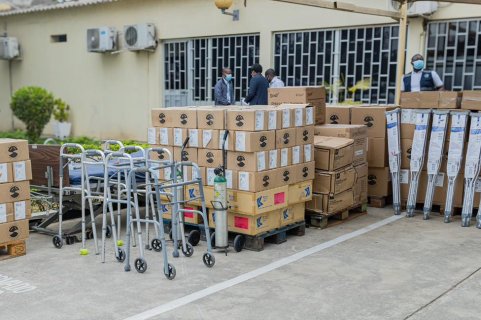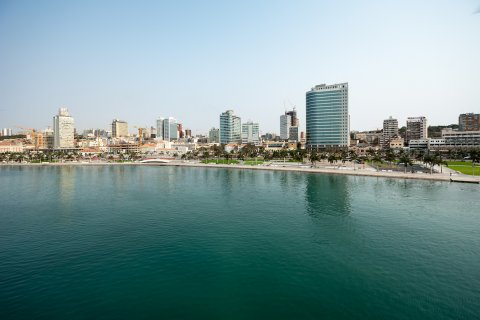The law, which amends the Basic Law on Civil Protection, was passed with 190 votes in favour, with no votes against or abstentions.
After the approval, there were requests for explanations of votes, and the MP of the Popular Movement for the Liberation of Angola (MPLA), Tomás da Silva, considered the need to update and conform the system of civil protection to the Constitution of the Republic of Angola, which was assumed by his parliamentary group, "not only as a question of a merely legal-constitutional nature, but also as a matter and a very important and urgent challenge of national interest.
"The MPLA parliamentary group voted in favour, because the policies of measures foreseen in the revised law will be executed without any limitation or suspension of fundamental rights, freedoms and guarantees of the citizen", said Tomás da Silva, recalling that "Angola has become today, like most countries in the world, a society of risk, where the covid-19 constitutes the main challenge and the enemy of all Angolans without distinction".
According to the deputy, this revised law not only removed the rules contrary to the Constitution and the submission of the omitted matters, but also allocated sufficient instruments to the President to formulate and implement measures in situations of great collective risk.
For his part, the vice-president of the parliamentary group of the National Union for the Total Independence of Angola (UNITA), Maurílio Luiele, stressed that the urgent nature of the government's proposal for a law "has given rise to concerns on the part of the various parliamentary groups and political party representations".
"Fears that are justified, in the context of the particular situation we are experiencing today, dominated by the covid-19 pandemic, which has practically forced states at a global level to take measures, many of which in some way restrict fundamental rights", he said.
Maurílio Luiele said that the debate in the specialty allowed to clarify many of the doubts raised and to build consensus around fundamental issues that are foreseen in this law, "showing once again the virtues of dialogue and frank debate in democracy".
Alexandre Sebastião, leader of the parliamentary benches of Convergência Ampla de Salação de Angola - Coigação Eleitoral (CASA-CE), said that the favourable vote came from the understanding that "there was a need for its conformation with the Constitution and from the institutional point of view".
"We also voted in favour of this law because we noted that our legislation needed an adequate law, updated, in relation to the new phenomena, facts, which arise as much from men as from nature itself, and that [it needed] to be adapted to a firm, legal action by those who have this great responsibility, in this specific case the holder of executive power", he said.
In the same vein, the parliamentary representations of the Social Renewal Party (PRS) and the National Front for the Liberation of Angola (FNLA) considered it appropriate to amend the previous law, which was outdated.
Benedito Daniel, of the PRS, justified the vote by stating that the need to amend the Basic Law of Civil Protection of 2003 was long overdue, as it brought outdated norms into context, while Lucas Ngonda, of the FNLA, considered that the law filled in the gaps that existed in the previous law.
The main changes to the law were noted in Article 4, with the introduction of new paragraphs, namely paragraph seven, which created more discussions at the time of the discussions, as it proved unconstitutional.
"The measures taken by the President of the Republic, as the holder of the executive power, under this law, may under no circumstances jeopardize citizens' rights, freedoms and guarantees, as well as Article 58 of the Constitution of the Republic of Angola", establishes the new draft law.
Among the amendments proposed by the deputies, there is also the introduction of paragraph one d) of article 4, according to which activities involving the mass participation of citizens may be suspended or limited "as long as there is a risk of contagion or insecurity of citizens".
The law now approved allows to frame the state of calamity, which the President of the Republic, João Lourenço, is preparing to declare from Monday, according to the Angolan press, which cites presidential sources.
The country ends on 25 May the third extension of the state of emergency, declared for the first time on 27 March to contain the spread of the pandemic.
Angola currently has 60 cases of covid-19 infection, three of which have resulted in deaths.







